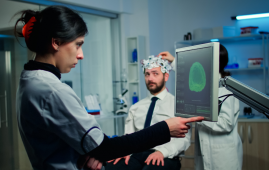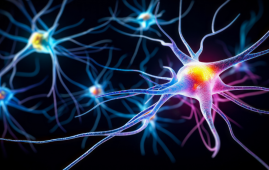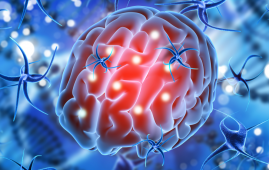

A spider venom molecule being studied by a University of Queensland team has met essential criteria for becoming a therapy for heart attack and stroke.
Associate Professor Nathan Palpant and Professor Glenn King of the University of Queensland’s Institute for Molecular Bioscience previously demonstrated that the therapeutic candidate Hi1a protects cells from damage caused by heart attack and stroke.
Dr. Palpant stated that a following study put the medicine through a number of preclinical tests designed to simulate real-world therapy circumstances.
“These tests are a major step towards helping us understand how Hi1a would work as a therapeutic – at what stage of a heart attack it could be used and what the doses should be.
We established that Hi1a is as effective at protecting the heart as the only cardioprotective drug to reach Phase 3 clinical trials, a drug that was ultimately shelved due to side effects.
Importantly, we found that Hi1a only interacts with cells in the injured zone of the heart during an attack and doesn’t bind to healthy regions of the heart – reducing the chance of side effects.” – Dr. Nathan Palpant, Associate Professor, UQ’s Institute for Molecular Bioscience
Professor King, who recently received the Prime Minister’s Prize for Innovation for producing the world’s first insecticides derived from spider venom, identified Hi1a in the venom of the K’gari funnel web spider.
“Hi1a could reduce damage to the heart and brain during heart attacks and strokes by preventing cell death caused by lack of oxygen,” Dr. King added.
“Our testing and safety studies from independent contract research organisations has provided evidence that Hi1a could be an effective and safe therapeutic.”
The researchers co-founded Infensa Bioscience, which raised $23 million in 2022 to commercialize Hi1a.
Associate Professor Mark Smythe, CEO of Infensa and a University of Queensland researcher, stated that cardiovascular disease is the leading cause of mortality worldwide.
“Most deaths from cardiovascular disease are caused by heart attacks and strokes, yet there are no drugs on the market that prevent the damage they cause,” stated Dr. Smythe.
“An effective drug to treat heart attacks would have worldwide impact, providing a breakthrough to improve the lives of millions of individuals living with heart disease.”
For more information: Acid-sensing ion channel 1a blockade reduces myocardial injury in rodent models of myocardial infarction, The European Heart Journal, https://doi.org/10.1093/eurheartj/ehad793
more recommended stories
 Brain Pulsations Linked to High BMI
Brain Pulsations Linked to High BMIAccording to a new study from.
 Brain Age Estimation: EEG Advancements in Neurology
Brain Age Estimation: EEG Advancements in NeurologyTo estimate brain age using EEG.
 Unlocking Ketogenic Diet for Epilepsy Management
Unlocking Ketogenic Diet for Epilepsy ManagementExploring the Therapeutic Potential of Ketogenic.
 Senescence in Neurons: Findings
Senescence in Neurons: FindingsBased on a new study by.
 Balanced Diet Linked to Enhanced Brain Health
Balanced Diet Linked to Enhanced Brain HealthDiet and brain health are strongly.
 Acid-Reducing Drugs Linked to Higher Migraine Risk
Acid-Reducing Drugs Linked to Higher Migraine RiskIndividuals who utilize acid-reducing drugs may.
 Atrial Fibrillation in Young Adults: Increased Heart Failure and Stroke Risk
Atrial Fibrillation in Young Adults: Increased Heart Failure and Stroke RiskIn a recent study published in.
 Neurodegeneration Linked to Fibrin in Brain Injury
Neurodegeneration Linked to Fibrin in Brain InjuryThe health results for the approximately.
 DELiVR: Advancing Brain Cell Mapping with AI and VR
DELiVR: Advancing Brain Cell Mapping with AI and VRDELiVR is a novel AI-based method.
 Retinal Neurodegeneration in Parkinson’s Disease
Retinal Neurodegeneration in Parkinson’s DiseaseBy measuring the thickness of the.

Leave a Comment